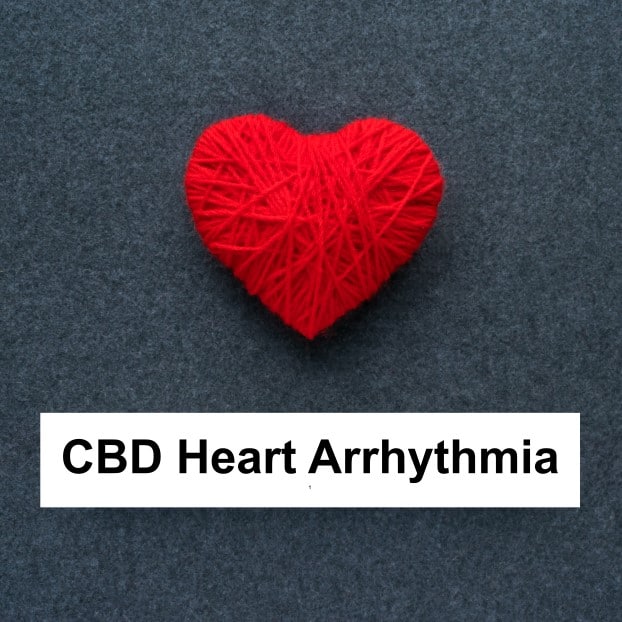CBD and Congestive Heart Failure: Keeping Your Heart Healthy

Posted on April 20th, 2021
Heart disease is one of the leading causes of death of people all around the world. In the United States, it is the leading cause of death of men and women, killing around 655,000 people each year, which translates to one in every four deaths. This means that every 37 seconds in the United States, someone passes on from this disease. The typical medications for heart disease come with multiple side effects that can cause health complications, addiction, and in severe cases, death. So, a safer alternative would be ideal. Here is where CBD comes in. CBD has been getting a lot of buzz over recent years due to its numerous potential benefits. Many people report that it has had positive effects on anxiety, depression, pain, nausea, and even heart disease. So, is there a positive connection between CBD and congestive heart failure?
Products of the hemp plant can certainly lead to heart health benefits, but the research is still in its infancy. Also, the FDA does not regulate CBD products, which can be pretty tricky. The only CBD product that is officially approved is Epidiolex, for epilepsy. So, should you take CBD if you have a heart condition? Is it safe? What are the side effects? To learn this and more, read on.
Heart Failure, What Is It?
The term heart failure sounds like the heart is not working, and nothing can be done to restore it to its functionalities. However, this is not the case. Heart failure, also known as congestive heart failure, occurs when the heart muscle does not pump blood as it should. This can happen due to certain conditions such as high blood pressure or narrow arteries, leaving the heart too weak to fill and pump as it should.
 Congestive Heart Failure
Congestive Heart Failure
Congestive heart failure affects about 5.7 million people in the United States alone, according to the Center for Disease Control and Prevention (CDC). The majority of the people are men, with it being the leading cause of hospitalizations in men older than 65. Women tend to have heart failure later in life than men and it tends to come from high blood pressure. They may also have more shortness of breath than men.
When you develop heart failure, the heart works less effectively than it did before. Blood then moves at a slower rate through the body, leading to higher pressure in the heart. Hence, the body will not get enough oxygen and nutrients, leading to its chambers stretching to hold more blood or becoming stiff and thick. It may also pump faster to increase the output. This will help to keep the blood moving, but the heart’s muscle walls will weaken eventually and not pump effectively.
Due to this, the kidneys will cause the body to retain more fluid and salt. It then builds up in other areas, such as arms, legs, lungs, feet, and other organs. This leads to congestion in the body. It can involve the left side, right side, or both sides of the heart. However, it usually begins with the left side. Cannabidiol’s properties of vasodilation make CBD and congestive heart failure a promising field.
Signs And Symptoms
- Shortness of breath.
- Fatigue and leg weakness when you are active.
- Need to urinate at night.
- Rapid or irregular heartbeats.
- Swelling in ankles, legs, and abdomen.
- Loss of appetite.
- Protruding neck veins.
- Persistent coughing.
- Sudden weight gain from fluid retention.
- Nausea.
Causes of Congestive Heart Failure
Congestive heart failure starts with conditions that damage the heart muscle, hence weakening it. However, the heart does not need to be weakened to cause heart failure; this can also occur when it becomes too stiff. Some of the medical conditions that cause heart failure include:
- Coronary Artery Disease: CAD is a disease of the arteries that causes a decrease in blood flow to the heart muscle.
- High Blood Pressure: causes the heart to work harder than usual to circulate blood. With time, the extra exertion can cause the muscle to become too stiff or weak to pump blood as it should.
- Myocarditis: refers to the inflammation of the heart muscle and is caused by a virus, such as the Coronavirus. It can lead to left-sided heart failure.
- Heart Attack: happens when there is a blockage in a coronary artery, stopping the blood flow to the heart muscle. It damages the heart muscle, causing a scarred area that does not function efficiently. The heart may become more prominent or stiff.
- Cardiomyopathy: a disorder of the heart muscle that causes the heart to become weak. It is caused by several things such as alcohol abuse, infections, and toxic effects of drugs such as cocaine. Also, genetic factors may play a role here.
- A Congenital Heart Defect: If you are born when the heart and its chambers are not finished forming, the healthy parts will have to overwork to compensate. This may, in turn, lead to heart failure.
- Other Diseases: Chronic diseases such as HIV and AIDS, diabetes, hyperthyroidism, hypothyroidism, or amyloidosis may also lead to heart failure.
- Medications: Some drugs used for chemotherapy may lead to heart failure.
Risks for Congestive Heart Failure
Some lifestyle factors may lead to heart failure. People at a greater risk of getting congestive heart failure include:
- Smokers.
- People who use anabolic steroids.
- Drinking too much alcohol may weaken the heart and lead to heart failure.
- Obese people.
- People with diseases that damage the heart such as anemia, emphysema, hyperthyroidism, and hypothyroidism.
- People who are 65 years or older are at a higher risk of getting heart failure.
Decreasing Risks
A healthy lifestyle will play a key role in helping prevent heart failure from developing. Some of the healthy lifestyle habits include:
- Losing weight and exercising regularly.
- Reducing salt intake.
- Reducing alcohol intake.
- Getting a good night’s sleep.
- Avoiding foods high in fat.
- Quitting smoking.
- Reducing and managing stress.
 What Is CBD?
What Is CBD?
Cannabidiol (CBD) is one of the over 100 chemical compounds in the cannabis plant. It is not intoxicating like tetrahydrocannabinol (THC), the primary psychoactive compound in the cannabis plant, is. Therefore, you will not get a euphoric feeling when you take CBD, which has made it quite popular.
Effects Of CBD
Some of the areas where CBD has showed great potential are:
- pain relief
- anxiety and depression
- reducing acne
- alleviating cancer symptoms such as nausea and vomiting
- antipsychotic effects, hence beneficial for people with mental disorders.
- anti-seizure, hence a possible treatment for epilepsy.
- helps with sleep disorders.
- CBD and congestive heart failure: It could benefit heart health.
How Does CBD Work?
The human body has an endocannabinoid system that helps maintain homeostasis (balance) in the body. CBD interacts with the cannabinoid receptors in the body. There are two types of receptors in the body, namely CB1 and CB2. CB1 receptors are usually in the brain and help coordinate emotions, pain, movement, appetite, memories, thinking, and other functions. The latter is mainly in the immune system, hence affecting pain and inflammation. CBD stimulates these receptors to manage the body’s functions.
CBD and Congestive Heart Failure
When it comes to CBD and congestive heart failure, cannabinoid receptors in the heart play a role. These communicate with the body to help regulate certain heart functions. Also, CBD can help reduce the risk factors that lead to heart disease due to its anti-inflammatory and antioxidative properties. However, there is still ongoing research on CBD and heart disease, as it is still in its infancy.
Benefits of CBD and Congestive Heart Failure
Research on CBD shows that it may have several benefits to the heart and the circulatory system. CBD has anti-inflammatory properties; hence it helps reduce the inflammation of the heart. It also delays the reabsorption of adenosine, which helps with inflammation and helps maintain healthy heart functions.
It lowers blood pressure, which leads to stroke and heart failure, which cause heart attacks. For instance, CBD lowers blood pressure by widening the blood vessels and enabling blood to flow easily. This happens because CBD is a vasodilator.
Risks of CBD
Research and anecdotal evidence shows that CBD is very safe. However, it is crucial to note that everyone is different, and may have different reactions when they take it. Some possible side effects include diarrhea, fatigue, weight changes, and changes in appetite. It can also interact with other medications, potentially endangering the liver.
Conclusion
CBD could be a great option for reducing certain risks that lead to heart issues. However, as seen above, there is still a lot of research to be done on CBD and congestive heart failure. Therefore, you should be sure to talk to your doctor before taking CBD. You should also avoid it during your pregnancy or when breastfeeding. Also, please start with the minimum dosage as you note how your body responds to it. Monitor your symptoms and conditions to guide you on how to go about it. Also, remember that a healthy diet and regular exercise are crucial to maintaining your heart health.





